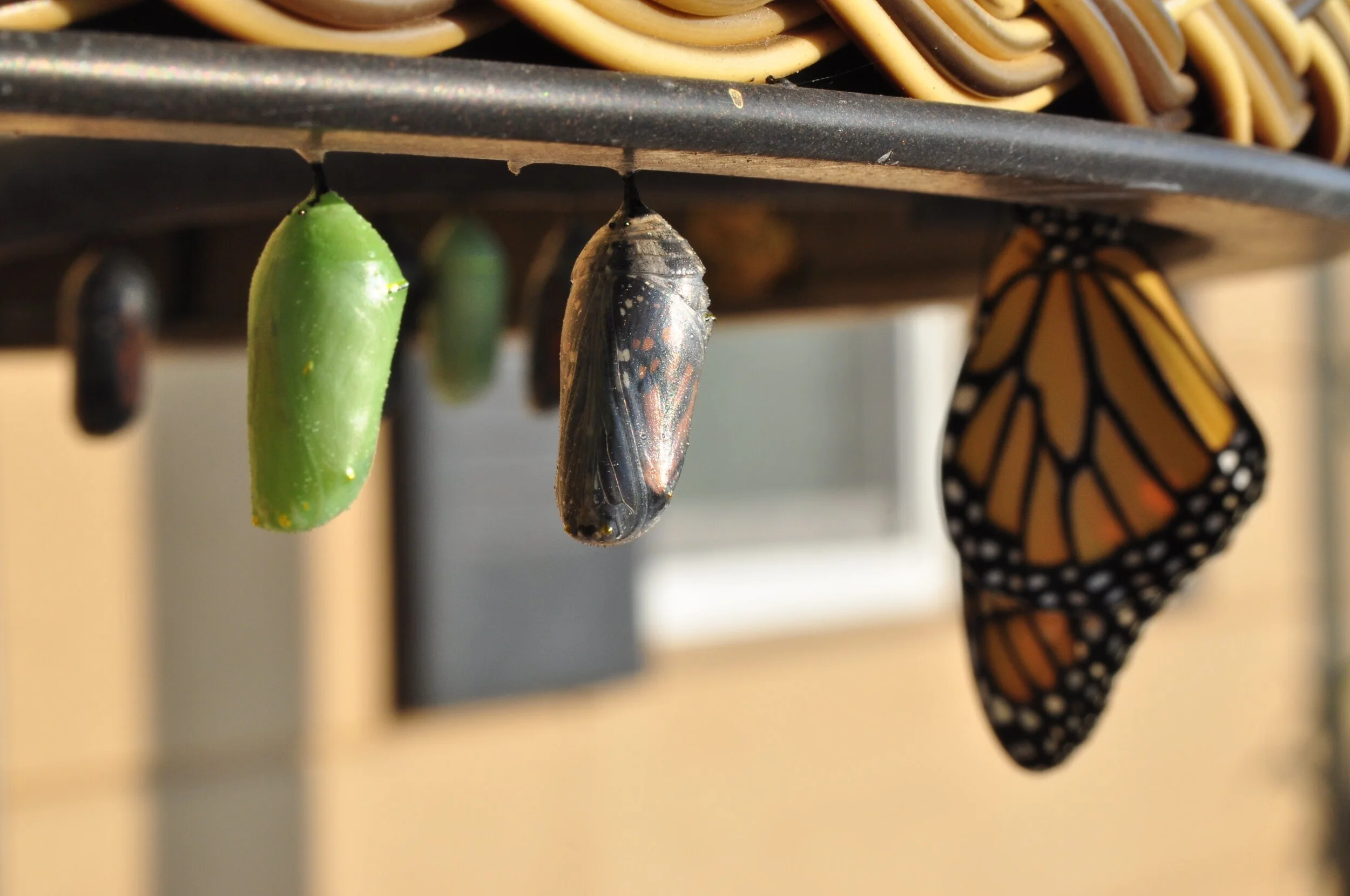Transition Times ~ How to Cope
Call it what you will; transition, change, or metamorphosis; we all go through processes of change from one state or condition to another.
Change is a part of life. No one is immune to it. But how we handle change and adapt our emotions, mind and body to the process is the key to moving through it.
Start with your birth. What massive change. The warmth and security of the womb, experiencing growth daily. Adapting to outside influences. Then WHAM! Out you pop to a whole new experience. The ultimate bright lights, big city!
Fast track to a five year old starting school or you’re moving into high school. It is unknown; new faces, experiences, places. This can feel daunting, scary, but often filtrated with excitement, wonder and a healthy confidence dose of “I’ve Got This!”.
These periods of transition continue throughout our lives; university, jobs, home ownership, relationships, marriage, birth of our own child, ageing, menopause and death.
Change can trigger stress, overwhelm, panic attacks and mental confusion. It may set your nervous system into overdrive, running on adrenalin as the “fight/flight” response kicks in.
In clinic, I’ve been seeing children and adults who are experiencing change and the stress that comes with it. And yes, it can be crippling. But eventually they let go, the tears may flow, and some sense of “the moment” prevails where they can see the reality of what is going on.
A realisation that their mind is ruling their emotions (their heart) and their body is simply experiencing the symptoms. About 75% of people will mis-predict when bad things are going to happen. In other words, in moments of change, and therefore uncertainty, your brain expects the worst.
So how can we cope better with periods of transition?
I ask my clients, “Can you do anything about this NOW?” Usually they will say no…but….My response to this is “so the answer is NO”. How can you let that {insert issue here} go until the answer to the question is YES and you can act upon it from the heart.
This tends to stop the inevitable “why” and “but” that often follows. They start to look inward and over time connect more with what they feel in order to process the change rather than what they want / need as an outcome.
To support you moving through change here are some useful tips that can be applied at any age so you or your family can move through the process and gain gratitude for the journey rather than just striving for a happy ending:
Apply the basics
Start a healthy routine for your body. Early nights, exercise, get into nature, healthy nutrition, up your water intake and down with your screens. Slow, yin style exercise may be more beneficial at these times than hitting the gym.
Understand and connect
Emotions (event-driven) and feelings (learned behaviour) are like two sides of the same coin. An emotion: a physical response to change that is almost hard-wired and universal. The other, your feeling: the mental association and reaction to an emotion that is personal and acquired through experience. I see it as emotions precede feelings. Observing your emotions and feelings with curiosity can lead to a greater awareness of ourselves.
Carry something special
Wait. What? “I’m not carrying a teddy bear around with me!” But it’s not as silly as it sounds. Having something with you that is personable keeps you feeling safe. And in times of change we may not feel safe. A trinket, a special song, a crystal against your skin, even a teddy bear in your briefcase….I dare you!
Don’t rush it, this will take time
Change follows a process. This can take time to adjust and evolve. So be gentle on yourself and others around you. Find moments to reflect and be patient. All processes complete themselves if we allow them to unfold; one step at a time. Stay in the moment.
Communicate
It’s important to find time to reflect and be with yourself through change but it’s often hard to see through what’s going on when you’re in the thick of it. Find a trusted friend, therapist, practitioner to support you to keep on track.
Don’t forget to breathe
Deep, rhythmic breathing can drop you out of “Fight/Flight and into a calm state. Hands on your belly, watch it moving slowing up as you breathe in and drop as you breathe out. Making the out breath a little longer than the in breath.
I’m losing my shit
Emotional stress release points (ESR’s) are powerful acupressure points to calm yourself down if you’re feeling overwhelmed. Simply place your hand over your forehead, just above your eyes and breathe as above.
Keep it simple
Don’t plan too many events, activities and to do lists. Over stretching yourself at times of change can just lead to overwhelm and can mentally and physically stop you in your tracks. Simple and steady.
Kinesiology can help identify and clear the causes of anxiety at times of change. By identifying past triggers to change and “re-writing” our response we can start to move through it easier. Exploring with curiosity and no judgement opens up this process.
For more information on how Kinesiology can benefit you in your journey or to book a Free Exploration chat, please visit: Zode Kinesiology
Zoe Jack
Holistic Kinesiologist
Zode Kinesiology


